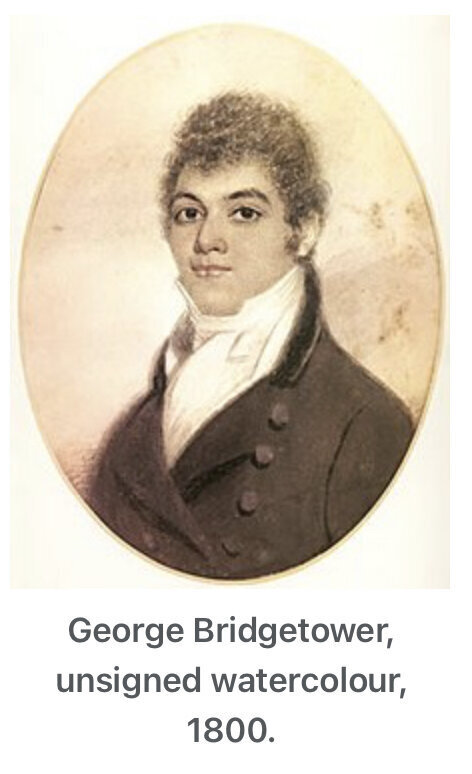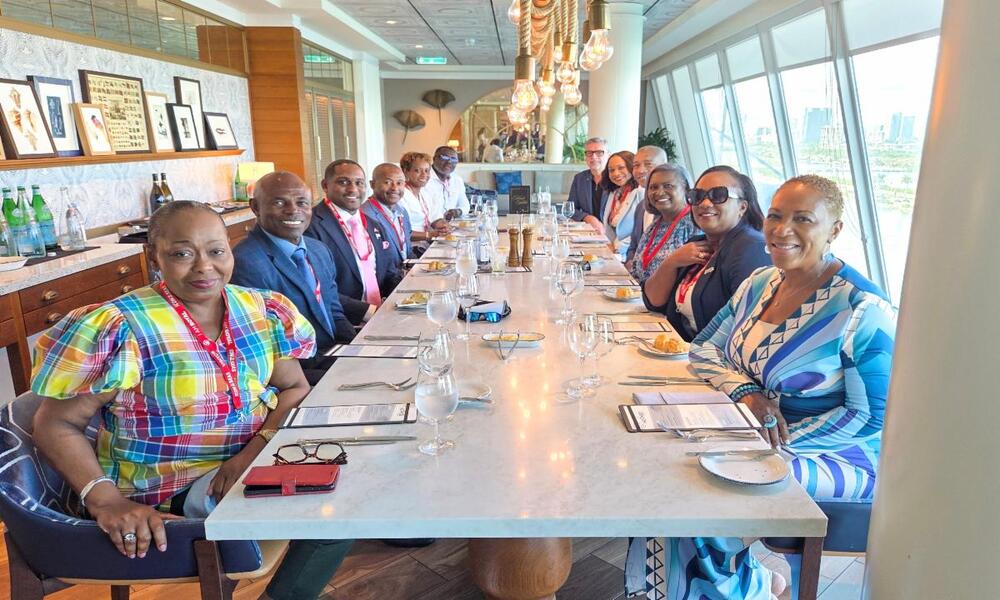When thinking of the violin and classical music, it may come as a surprise to learn that at one point the greatest classical soloist of that instrument was a Black man who lived for most of his adult life in Peckham, South London.
George Bridgetower was a virtuoso violinist born in Biala Polaska, Poland, on 11th October 1778, to a musical family. His mother and father were from Germany and Barbados, respectively, and met while working in Poland for the Hungarian Prince Esterházy.
The prince was a great supporter of the arts, and patron of composer Joseph Haydn. Within a few years his parents moved to Austria where his younger brothers Friedrich (who became a noted Cellist) and Johannes were born. George hhad shown he had a prodigious talent from very early on and was taken on an extensive tour of Europe by his father.
Very quickly he began to gain an international reputation as a gifted violist. He was taken to London to live, and by age 10 was a soloist at the Drury Lane Theatre. He made such an impression upon the British Prince Regent, that the future King George IV took him under his wing, agreeing to pay for his musical education, placing him with François-Hippolyte Barthélémon, the leader of the Royal Opera, and the Croatian-Italian composer Giovanni Giornovichi, as well as with Thomas Attwood, St Paul’s Cathedral organist and professor at the Royal Academy of Music.
For the next decade George Bridgetower continued to travel abroad wowing many audiences across Europe, most notably Beethoven, who performed with him in Vienna in 1803. During that period, he was considered to be the greatest violinist on earth. Beethoven famously dedicated his Violin Sonata No. 9 in A minor to him, and also gave Bridgetower his tuning fork, which is now held by the British Library. However, the two later fell out over a woman, causing Beethoven to renege on Sonato no. 9.
Instead, he rededicated the composition to the violinist Rudolphe Kreutzer, even though the latter never played the piece commenting that he thought it too complicated. Ironically, the composition is known as the Kreutzer Sonata. Although George Bridgetower had continued success, elected to the Royal Society of Musicians, and earning a Bachelor of Music degree, there’s no doubt the fallout with Beethoven affected his career. He and his wife Mary Leeke bought a house in South London, at 8 Victory cottages in Peckham.
There they lived comfortably until Mary died. Thereafter George spent his later years travelling between London and Italy, where his daughter resided, until his death in 1860. He was buried in Kensal Green Cemetery. In 1970 his house was demolished and a retirement complex later built on the site. It eventually became Jack Jones House, named in memory of the famous trade unionist who resided there.
244 years to very day George Bridgetower was born and baptised, the Nubian Jak Community Trust partnership with Southwark Council and Sony Music UK will be installing a blue heritage plaque on the site where George Bridgetower once lived.
Dr Jak Beula, CEO of the Nubian Jak Community Trust said: “George Bridgetower, quite simply, is the greatest violin virtuoso this country has ever seen. His plaque will be music to the ears of those who have been calling for him to recognised and re-celebrated.”
Director of Diversity, Inclusion and Social Impact at Sony Music UK, Charlotte Edgeworth, added: “Sony Music UK are thrilled to support the creation of this plaque commemorating George Bridgetower, who had a profound influence on classical music. Bridgetower was a highly talented violinist whose career took him from playing solo at Drury Lane Theatre to performing alongside Beethoven in Vienna. We’re delighted he is getting appropriate recognition and hope to introduce him to a new audience with this blue heritage plaque at the house where he once lived.”
The Blue Plaque will be revealed at Jack Jones House, 12 Reedham Street, London, SE15 4PH.











